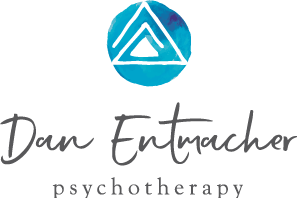We all want to be successful in life, but what do we really mean by “success” and what is it we are really wanting? For much of our country’s history being successful has meant financial wealth, having a “good” job, and maybe even becoming rich and famous. However, how many rich people have you heard about that seem truly happy? Chasing the mirage of this narrow definition of success at the expense of all else seems to be a uniquely American pastime that we are exporting as Western culture sweeps the globe. This single pointed focus in financial wealth as success also seems to actually reduce feelings of wellbeing and happiness, though it has been known to be a good distraction for one’s unhappiness. And, despite the fact that Researchers out of Princeton University have concluded that after earning an annual income of $75,000 in the U.S. money seems to have no effect on one’s level of happiness, many continue to pursue the almighty $$$ thinking that more = better.
Timothy Ferris, the New York Times bestselling author and self proclaimed “human guinea pig,” states that success should be defined as wealth in time and mobility and the ability to earn enough money—about $75,000— a demographic he defines as “the new rich.” This idea of the new rich is tied to what Tim feels brings happiness. Though I agree with Tim and would consider this definition of success to be a lot closer to bringing us what we really want from success, it is helpful to take a closer more scientifically support look. We could begin by asking, “What are the conditions that wealth in time and mobility provide that actually fosters happiness?” For the answers to this question I turn to Harvard University and one of the longest studies ever conducted on adult development, the clearest message of which is that,
Relational wealth, in the form of good relationships, is the key ingredient to our happiness and health.
What success within the New Rich actually provides is the time and freedom to invest in the relationships that make our lives rich and full and our bodies healthy. This means that even if you are wealthy in time and mobility, you could still be fairly unhappy if your relationships are in ruins. As a side note, the notion of happiness being linked to how you spend your resources is supported by the work of Michael Norton, a social science researcher, who asserts that money can make you happy if you spend it on others, i.e.–relationships.
Now, let’s take a closer look at the data to see how this study can help refocus our definition of success and inform the pursuit of happiness.

The Harvard Study: A Rare Look into What Truly Makes Us Happy
The Harvard study on adult development is one of the longest ongoing studies in the world and involves tracking the lives of 724 men, an admittedly difficult task. And, although clearly gender biased—what else would you expect from the 1940’s—the study includes two distinct groups; a group of Harvard sophomores and a group from Boston’s poorest neighborhoods. The data is striking in regards to how good relationships seem to be a predictor of happiness. Waldinger, the current director, notes that,
“It’s not just the number of friends you have, and it’s not whether or not you’re in a committed relationship, . . . it’s the quality of your close relationships that matters.”
For example, within the study happily partnered men in their 80’s reported that on the days they experienced higher than normal pain levels levels that there was no drop in mood. Conversely, unhappily partnered or single participants noted a clear drop in mood correlated to higher levels of pain. Given this finding, quality relationships seem to act as a buffer to the hardships of life. Additionally, the finding support the notion that good relationships not only lead to healthy minds, but also healthy bodies.
The data shows that individuals reporting the most relationships satisfaction at age 50 were the healthiest at age 80, including clear increases in cognitive clarity, memory, and cardiovascular health. Looked at from the other side of the coin, this study supports the notion that loneliness kills, and unfortunately 1 in 5 Americans report chronic feelings of loneliness. In fact, a meta analysis of over 70 studies and 3.4 million people, published in the journal Psychological Science, appears to back up this finding. The analysis notes that chronic isolation leads to a 30% increase in the likelihood of premature death in the next 7 years. So, perhaps at this point you are asking, “What can I do improve my relationships?—and preferably within the next 7 years thank you.”

Good Relationships
Any discussion of improving relationships must first define what a good relationship actually is. In the case of the Harvard study, good relationships are defined by a quality known as secure attachment or secure functioning. A securely attached relationship is one in which each individual feels that when the going gets tough that the other “has my back.” This type of secure functioning can be found in friendships, romantic partnerships, coworkers—think cops or the military—and familial relationships. Secure functioning involves a deep bond of trust and is built over time. The data is clear:
Quality over quantity is what we are looking for in relationship, and even though relationships can be difficult and messy they are well worth the time and energy.
Is There a Place for Conflict in Good Relationships?
Though living in the midst of consistent high conflict relationships is bad for your mental and physical health and wellbing, good relationships are not supposed to be conflict free. What really seems to matter is how we do conflict in relationship and if this leads to resolution. Getting through conflict together and repairing any damage to the relationship that may have been done actually strengthens relationship, much like a broken bone. For a more in-depth discussion of positive conflict in intimate relationships see my post titled Why Are We Still Fighting?
Authentic Relating
The other key ingredient to healthy relationships is the ability for each individual to relax any pretenses and simply feel comfortable in and valued for being themselves around the other. I would call this quality authenticity, and despite how simple it may sound in theory, in practice it can be quite a journey.
The Harvard study on adult development notes that out of the 724 individuals, that those who fared the best were those who leaned into relationships. Waldinger notes that leaning into relationship might involves thing like replacing screen time with face-to-face time, doing new things together, or reaching out to those you feel disconnected from to work out what might be in the way. These are good suggestions and I would add that it is possible to learn the art of authentic relationship and leaning in through practice.
Practice Time
If you are interested in learning how to build stronger, healthier, and deeper relationships then try this practice. Set aside 20 minutes with a partner, close friend, or even a group of friends and practice authentic relating.
The Principals:
- Speak from your present moment experience. This means speaking to things that are alive in this moment for you instead of telling a story about something that happened in the past. When you speak to what is happening in the present moment you will likely find that it feels more alive and that others are more interested in what you have to say.
- Focus on sharing your feelings and body sensations over thoughts. For example, “I’m noticing a tension in my chest and I’m feeling nervous.” Feel free to give some context—think in terms of using the headline of an article—“I’m feeling nervous about being authentic,” but try to avoid going into any sort of story about it.
- Focus on your own experience and use language that conveys ownership over blame. For example, saying “I notice feeling angry and scared when you don’t make eye contact, and I imagine you are hiding something from me,” is taking responsibility and ownership. Saying “I hate it when you refuse to make eye contact. You make me feel worthless. What are you hiding from me!?” is assigning blame and comes across as an attack.

Feel free to also share the impact of what someone else is speaking may bring up in you e.g.—“Hearing that, I notice myself start to relax and breath more deeply.” However, again try to avoid using language that shifts the responsibility of your feelings to someone else, as in “You make me feel ____.” I particularly encourage you to explore your assumptions about what is going on for the other person by creating open ended statements that leave room for the other to confirm your story or put forth a whole new possibility, e.g.—“I see that you have a scowl and I imagine you are angry at me because of what I did yesterday.” You may come to find that you live in a reality constructed largely by assumptions that may or may not be accurate at all!
It’s helpful to practice this form of authentic present moment relating with other willing participants. I find that many people crave deeper more satisfying connections and relationships but may not know how to create them. As you practice, you may find your sense of connection to others expanding and feeling much more caring and compassion for friends you have known for years. You may also find that this style of relating starts to carry over into the rest of your life. Speaking from the alive present moment and sharing ourselves is contagious and attractive, at least to those wanting to deepen their relationships. Pay attention to how it feels to bring a little more present moment authenticity into your life and to how others respond. You may be surprised.
If developing healthier more satisfying relationships still feels like a mystery to you, or you are struggling in a particular relationship, I encourage you to seek out help. As a counselor I offer professional support in the Boulder, CO area for creating healthy resilient relationships through conflict transformation and learning the art of authentic relating.
Good luck on your journey and may you become wealthy in good relationships.

